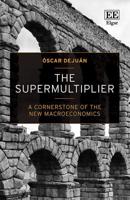Publisher's Synopsis
Japan's rise from the ashes of defeat in the Second World War to its position now as one of the world's foremost economies has long been recognized as one of the most startling turnarounds of the 20th Century. With economic reform again at the top of the global agenda with the fall of the Soviet bloc and the continuing struggle of the developing nations, the lessons of Japan's success have never been more valuable. This volume looks closely at the origins of the current Japanese economic system, focusing particularly on the contrast between the war period of 1930-1945 and the preceding situation. The contributors argue that Japan had an `Anglo-Saxon model' economy until the 1930s, and that the special features of the Japanese system -- good labour relations; employee-based corporate governance; the main banks' financial system; and the principle of `administrative guidance' -- were all deliberately created during militarization. Although there are many post-war factors that have led to the present-day Japanese situation -- the Dodge Plan, high post-war inflation, new technology, massive shifts in the labour force, deregulation from the 1960s onwards -- without the reforms introduced between 1930 and 1945 there would be no `Japanese system'.












